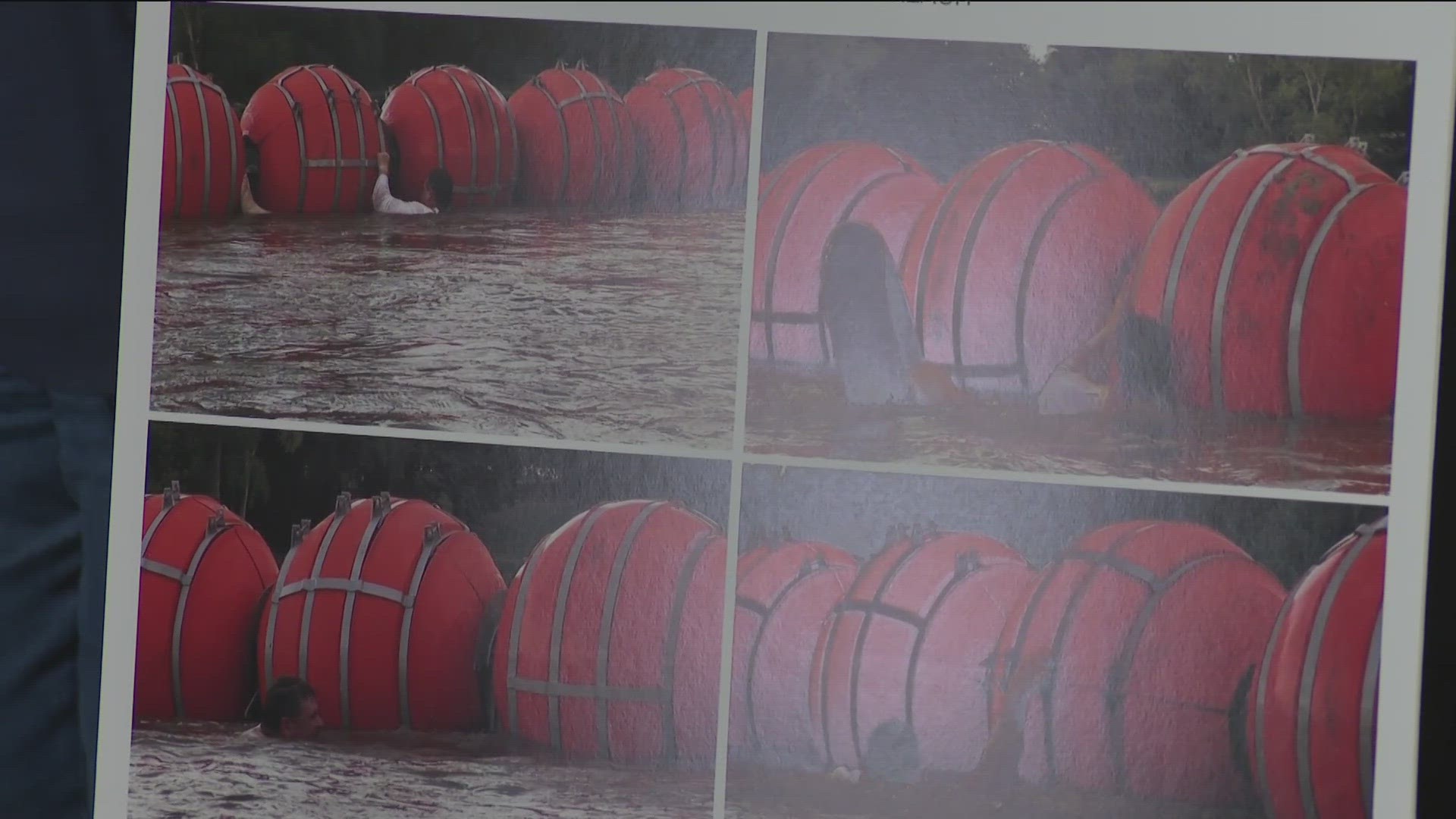AUSTIN, Texas — Gov. Greg Abbott signed what his office called "critical" border security legislation Thursday afternoon.
Aside from a plan to provide property tax relief to Texans, border security was the other issue the governor asked lawmakers to address during the current special session.
Prior to Thursday's ceremonial signing, Abbott had already signed into law at least five other bills on border security.
House Bill 4422 approves a study on public safety and infrastructure improvements to enhance border security. It has already gone into effect.
Senate Bill 602 goes into effect on Sept. 1. It gives federal Border Patrol agents the authority of arrest, search and seizure at the border if the crime in question would warrant felony charges in Texas. It also establishes a training program for Border Patrol agents.
Senate Bill 1133 also goes into effect on Sept. 1. It establishes a program to compensate landowners – specifically farmers and ranchers – for property damage caused by border-related crimes.
Senate Bill 1403 gives Abbott the power to develop a border security plan of action with other interested states. It's called an "interstate compact," which is a contract between two or more states that allows them to take certain action, adhere to a standard and cooperate in policy. This law goes into effect on Sept. 1.
And finally, Senate Bill 1484 establishes a training program partnership for local law enforcement and border operations. It will impact border communities like El Paso and Brownsville, and it will go into effect on Sept. 1.
The Texas House of Representatives adjourned on Day 1 of the current special session, after passing two bills addressing both of the governor's priorities and effectively putting the Texas Senate in a "take it or leave it" position.
No amendments can be made to the House bills without both sides giving the greenlight to send them on to the governor.
Still, the Senate advanced three immigration bills this week. But with the House not in session, none have much of a chance of becoming law.

